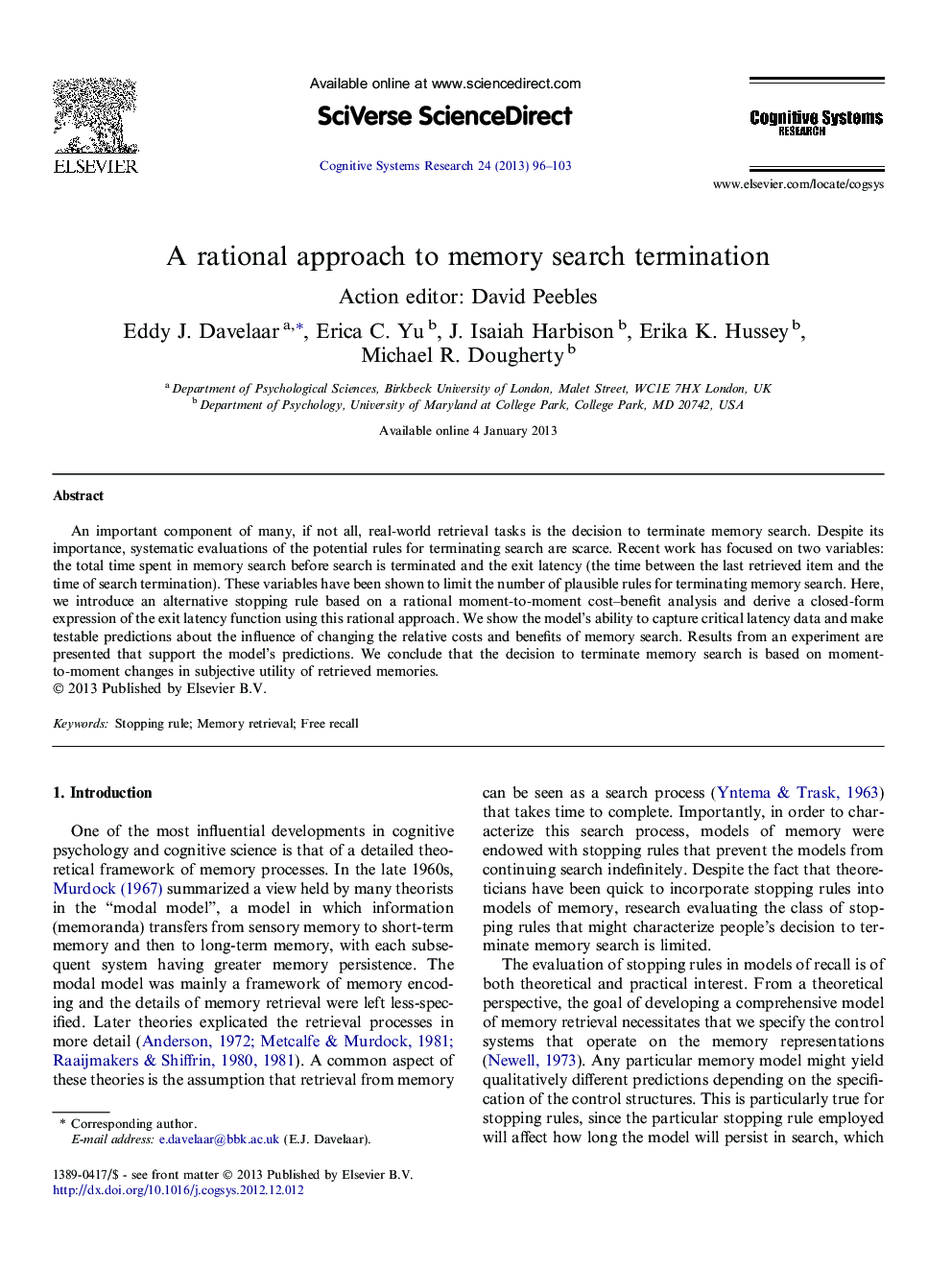| Article ID | Journal | Published Year | Pages | File Type |
|---|---|---|---|---|
| 378430 | Cognitive Systems Research | 2013 | 8 Pages |
An important component of many, if not all, real-world retrieval tasks is the decision to terminate memory search. Despite its importance, systematic evaluations of the potential rules for terminating search are scarce. Recent work has focused on two variables: the total time spent in memory search before search is terminated and the exit latency (the time between the last retrieved item and the time of search termination). These variables have been shown to limit the number of plausible rules for terminating memory search. Here, we introduce an alternative stopping rule based on a rational moment-to-moment cost–benefit analysis and derive a closed-form expression of the exit latency function using this rational approach. We show the model’s ability to capture critical latency data and make testable predictions about the influence of changing the relative costs and benefits of memory search. Results from an experiment are presented that support the model’s predictions. We conclude that the decision to terminate memory search is based on moment-to-moment changes in subjective utility of retrieved memories.
